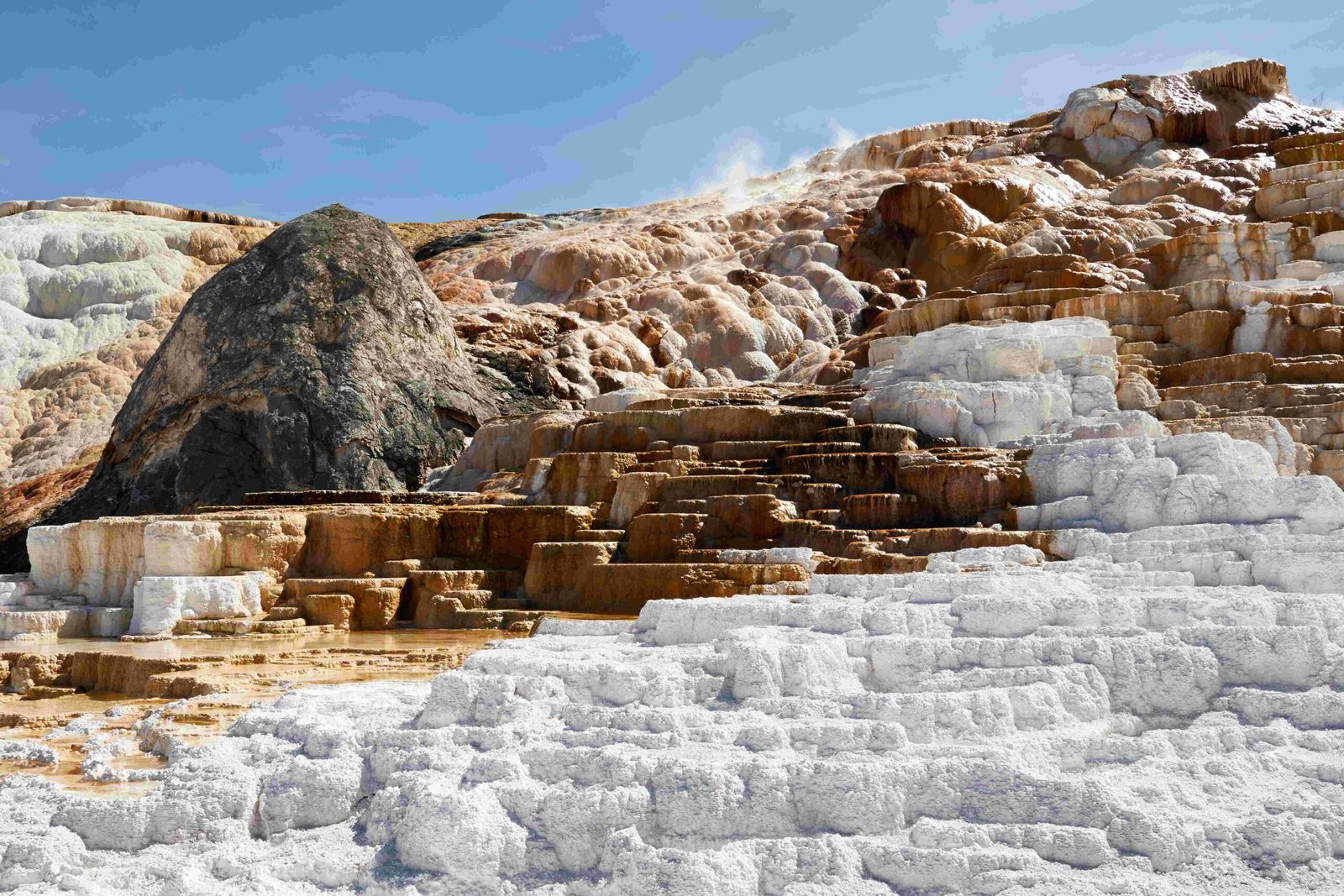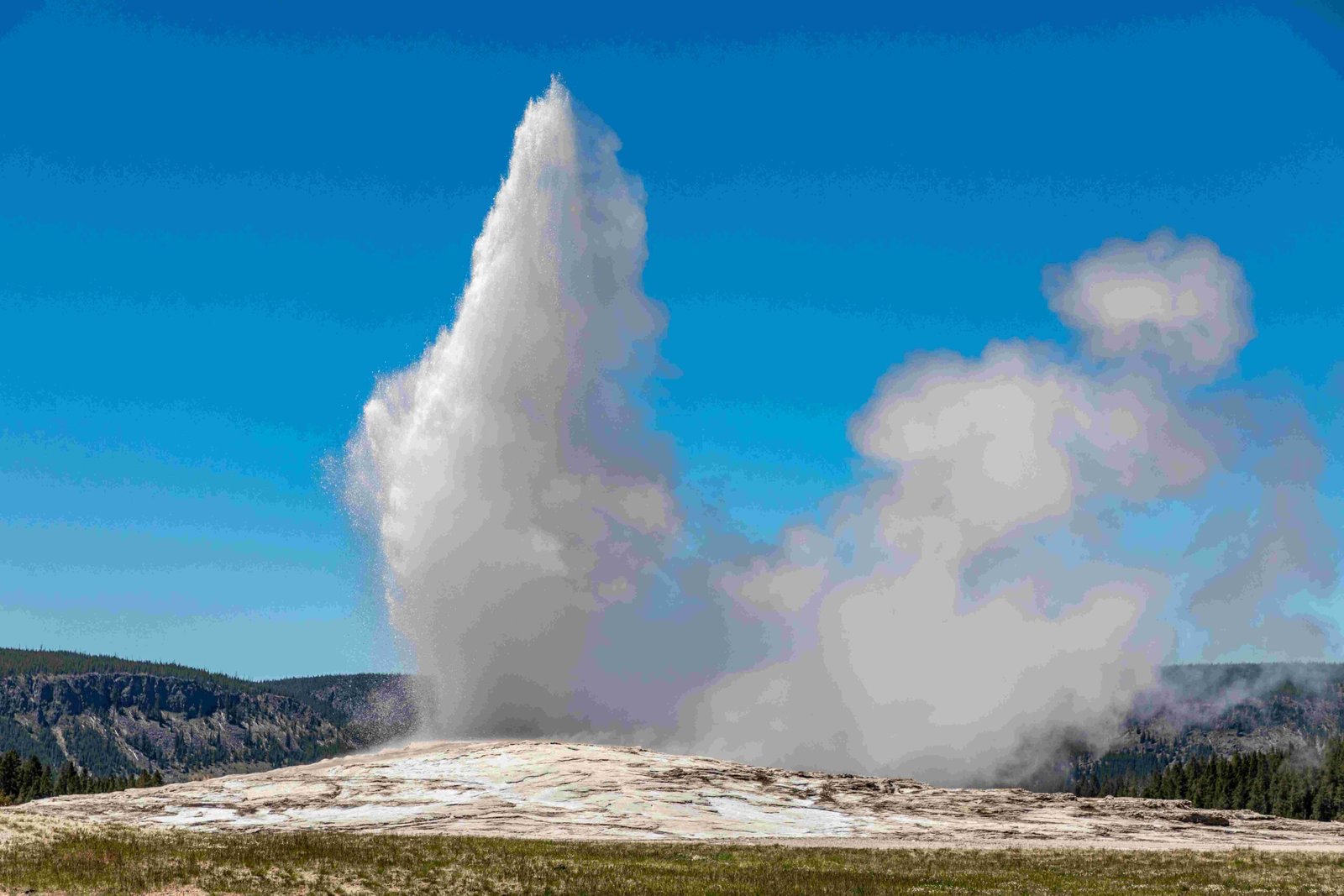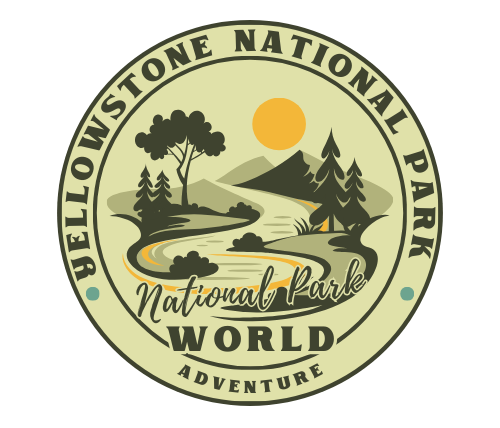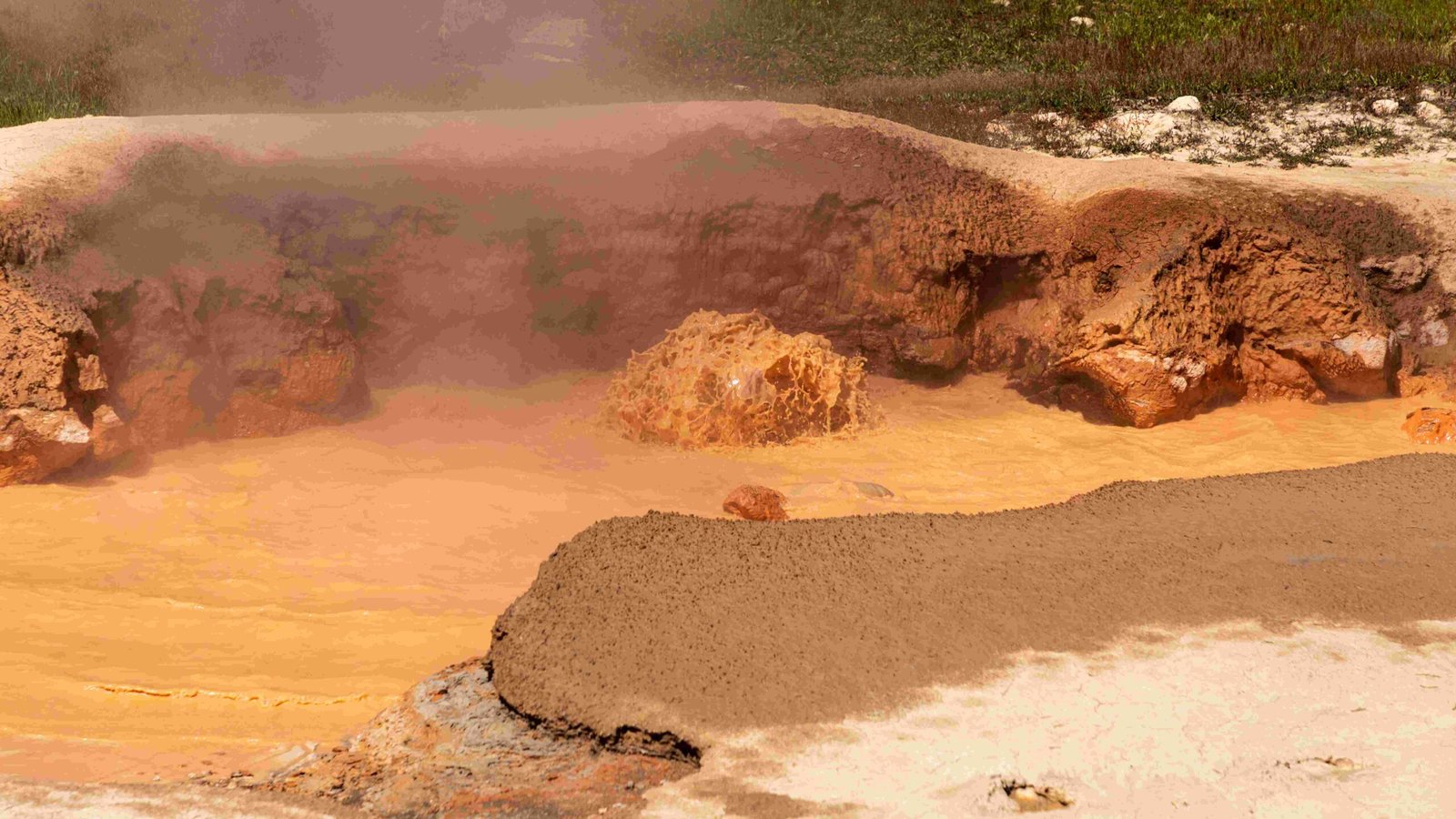Yellowstone National Park offers a diverse range of activities for visitors, including hiking through scenic trails, observing diverse wildlife in their natural habitats, exploring geothermal wonders like geysers and hot springs, camping in various facilities, fishing in pristine waters, and engaging in winter sports. These activities cater to different interests and skill levels, allowing visitors to experience the park’s unique natural beauty and geological features throughout the year.
What Are the Best Hiking Trails in Yellowstone?

Yellowstone National Park boasts over 900 miles of hiking trails, offering experiences for all skill levels. Here are some of the most popular trails:
- Mystic Falls Trail
- Length: 2.5 miles round-trip
- Difficulty: Moderate
-
Features: Waterfall, geothermal areas
-
Grand Canyon of the Yellowstone Trails
- North Rim Trail
- Length: 2.5 miles one-way
- Difficulty: Easy to moderate
-
South Rim Trail
- Length: 1.75 miles one-way
- Difficulty: Easy
-
Mount Washburn Trail
- Length: 6.2 miles round-trip
- Difficulty: Strenuous
-
Features: Panoramic views, wildflowers
-
Lone Star Geyser Trail
- Length: 4.8 miles round-trip
- Difficulty: Easy
- Features: Geyser eruptions, riverside scenery
When hiking, remember to:
– Carry bear spray
– Stay on designated trails
– Bring plenty of water and snacks
– Wear appropriate footwear and clothing
Where Are the Best Spots for Wildlife Viewing?

Yellowstone is home to an incredible array of wildlife. Here are the prime locations for wildlife spotting:
- Lamar Valley
- Known as the “Serengeti of North America”
- Best for: Wolves, grizzly bears, bison, elk
-
Optimal viewing times: Dawn and dusk
-
Hayden Valley
- Wide-open grasslands
- Best for: Bison herds, grizzly bears, coyotes
-
Tip: Bring binoculars for distant viewing
-
Mammoth Hot Springs Area
- Best for: Elk (especially during fall rut)
-
Also home to bighorn sheep and mule deer
-
Tower-Roosevelt Area
- Best for: Black bears, moose
- Nearby Petrified Tree area good for marmots and pika
Remember to maintain a safe distance from all wildlife. Park regulations require staying at least 100 yards away from bears and wolves, and 25 yards from all other animals.
How Can You Experience Yellowstone’s Geothermal Features?
Yellowstone’s geothermal wonders are a major draw for visitors. Here’s how to experience them:
- Old Faithful Area
- Watch the famous geyser erupt (every 35-120 minutes)
- Explore the Upper Geyser Basin boardwalks
-
Visit the Old Faithful Visitor Education Center
-
Grand Prismatic Spring
- Marvel at the largest hot spring in the United States
-
Take the elevated boardwalk for a bird’s-eye view
-
Norris Geyser Basin
- Explore the hottest, oldest, and most dynamic thermal area in Yellowstone
-
Visit Steamboat Geyser, the world’s tallest active geyser
-
Mammoth Hot Springs
- Walk the terraces formed by mineral-rich hot springs
- Learn about the area’s unique thermophiles (heat-loving microorganisms)
Guided tours are available, ranging from short walks to full-day excursions. Prices typically range from $50 to $150 per person, depending on the duration and type of tour.
What Camping Options Are Available in Yellowstone?
Yellowstone offers 12 campgrounds with varying amenities:
| Campground | Amenities | Reservations |
|---|---|---|
| Grant Village | Flush toilets, showers, dump station | Required |
| Bridge Bay | Flush toilets, dump station | Required |
| Madison | Flush toilets, dump station | Required |
| Norris | Flush toilets | First-come, first-served |
| Slough Creek | Vault toilets | First-come, first-served |
Tips for camping in Yellowstone:
– Make reservations well in advance for popular campgrounds
– Store food properly to avoid attracting wildlife
– Follow all park regulations, including quiet hours and fire restrictions
– Be prepared for varying weather conditions
What Fishing Opportunities Does Yellowstone Offer?
Yellowstone provides excellent fishing opportunities in its lakes, rivers, and streams:
- Yellowstone Lake
- Species: Native Yellowstone cutthroat trout
-
Fishing season: June 15 to first Sunday in November
-
Madison River
- Species: Brown trout, rainbow trout
-
Known for excellent fly fishing
-
Lamar River
- Species: Cutthroat trout
-
Best fishing in July and August
-
Firehole River
- Species: Brown trout, rainbow trout
- Unique experience of fishing amidst geothermal features
Fishing regulations:
– Yellowstone fishing permit required (available at visitor centers and ranger stations)
– Artificial lures only in many areas
– Catch-and-release for native species
What Winter Activities Are Available in Yellowstone?
Yellowstone transforms into a winter wonderland, offering unique activities:
- Cross-country Skiing
- Over 35 miles of groomed trails
-
Popular areas: Mammoth Hot Springs, Old Faithful
-
Snowshoeing
- Guided ranger programs available
-
Rent snowshoes at Mammoth Hot Springs and Old Faithful
-
Snowmobiling
- Guided tours only
-
Advance reservations required
-
Winter Wildlife Viewing
- Best for spotting wolves and bison
-
Guided tours available from Mammoth Hot Springs
-
Snow Coach Tours
- Heated, tracked vehicles for comfortable winter exploration
- Various tour options available, including geyser basin tours
Winter visitors should be prepared for extreme cold and limited services. Many facilities and roads are closed during winter months.
Yellowstone National Park offers a wealth of activities throughout the year, catering to nature enthusiasts, adventure seekers, and those looking for a peaceful retreat in one of America’s most stunning natural landscapes. Whether you’re hiking through pristine wilderness, observing diverse wildlife, marveling at geothermal wonders, or enjoying the serenity of a winter landscape, Yellowstone provides unforgettable experiences for all visitors.
References:
1. National Park Service – Things To Do in Yellowstone
2. Yellowstone Summer Activities
3. Top Yellowstone National Park Outdoor Activities – Viator

